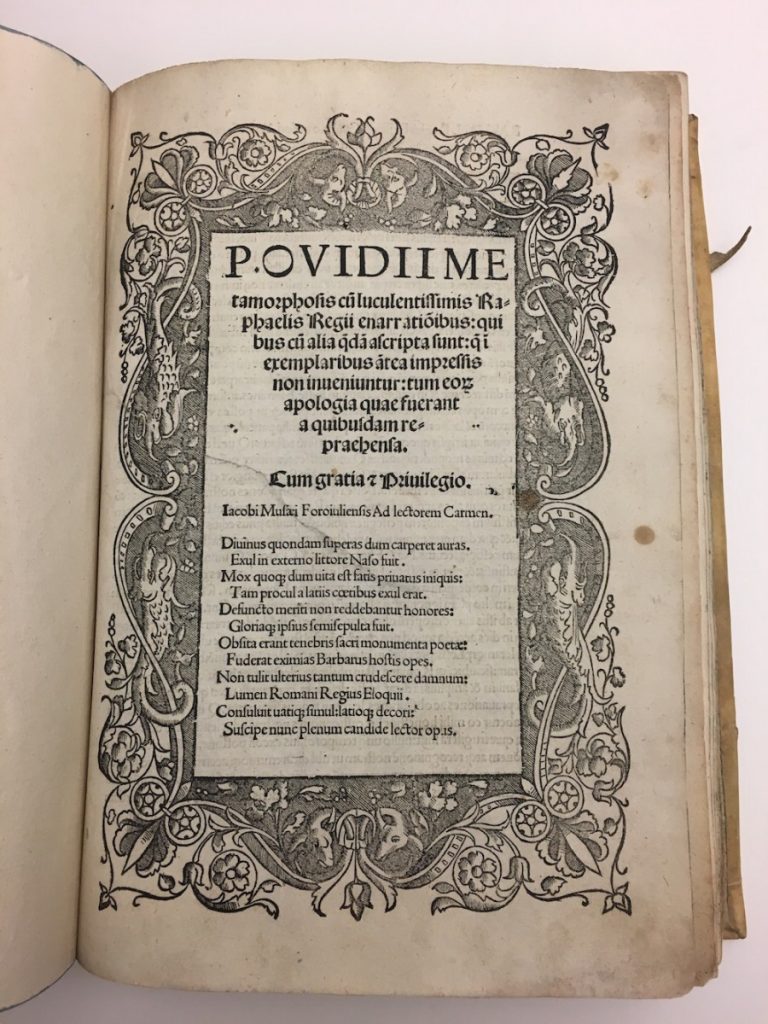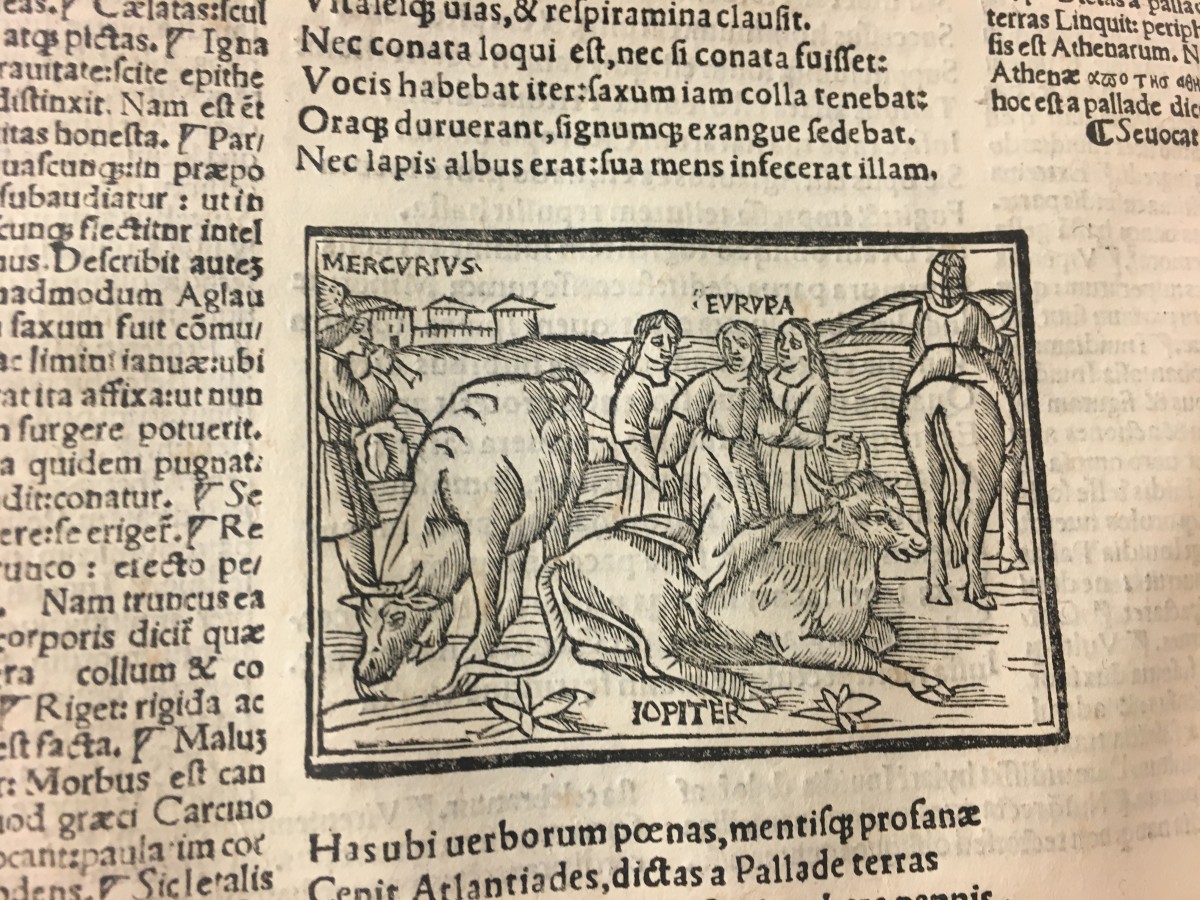Special Collections visitors often ask how the rare books in our collection make their way onto our shelves, and indeed, the question of provenance is one of great importance in the world of antiquarian items. For the materials in Special Collections & Archives, the trajectories of their journeys range from rare books and maps donated by Middlebury alumni acquired during their travels, to books purchased for specific classes at Middlebury to enhance students’ learning experiences.

One recently acquired item, an Italian Renaissance copy of Ovid’s Metamorphoses, had a particularly turbulent voyage from Italy to Vermont – but not in the way you might think. Our journey does not begin in 1521, the year of the book’s printing, but on Tuesday, September 13th, 2016, when Senior Acquisitions Associate Michele McHugh placed the order through AbeBooks.com to purchase the volume from an Italian bookseller based in Riva del Garda. A relatively standard request, we expected the book to arrive a few weeks later, but Mario, the owner of the bookshop, suspected we might have a bit longer to wait. In true Italian fashion, he anticipated bureaucratic delays and gave an estimate of 40-60 days before the book would reach us. He submitted the necessary government forms in late September, but in late October Mario reached out to let us know that even more documentation was required. By early November Mario reported that his paperwork had been accepted and the book would arrive soon.
This was only the beginning of the battle to obtain the book. On November 17th, Michele received a phone call from Karen at FedEx. She relayed that they were holding the package until its contents, origin, and sender could be identified and until we could provide an Importer ID number along with a form from the Office of Homeland Security. Michele responded that Middlebury College has been purchasing high priced books for many years without an Importer ID number but would forward the form to Accounts Payable in the hopes that they might know how to proceed.

Tuesday November 22nd, Karen at FedEx requested more information – this time, Mario’s Italian tax number. Without this, she said, the package would be returned to him, and he would be forced to find another shipping service. She revised her previous request, saying Middlebury would not need an Importer ID number, only Mario’s information. As asked, Michele forwarded Mario’s paperwork, but Karen’s only response was that another FedEx employee, Alexander, was now handling the case.
And so, Michele forwarded everything to Alexander, who replied on Monday November 28th saying she had been misinformed – FedEx would not require Mario’s tax information. Instead, Middlebury College would have to be added to their official list of American Importers in order to receive the parcel. (He also asked Michele what exactly was in the box, a small detail that had been lost in the administrative shuffle.) Middlebury’s Accounts Payable office quickly filled out the Homeland Security form, which Michele forwarded to Alexander at FedEx, and Thursday December 1st – 79 days after the order was placed – the book finally arrived.

Curious to see the book that caused such a stir? Come to Special Collections to see for yourself and stay tuned for more Ovid this semester when Special Collections & Archives celebrates the 2,000-year anniversary of his death.